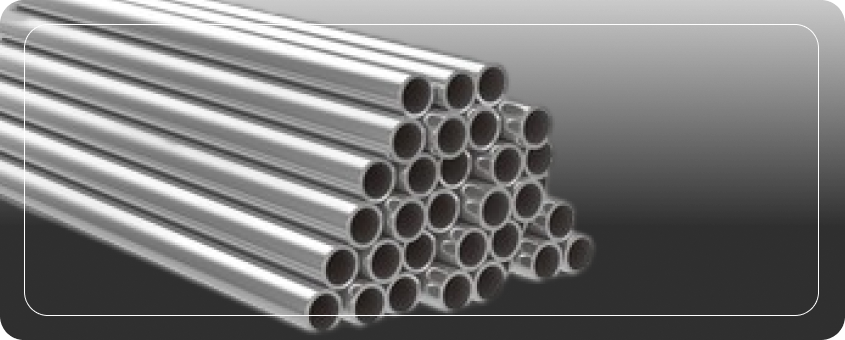Understanding Stainless Steel Washers: Types, Uses & Manufacturing Insights
What Are Stainless Steel Washers?

Stainless steel washers are made using various grades of stainless steel, known for their corrosion resistance, strength, and durability. They are widely used in environments exposed to moisture, chemicals, high temperatures, and physical stress.
Why Stainless Steel is Ideal for Washers
Stainless steel is preferred over other materials for washer manufacturing due to its combination of mechanical strength and corrosion resistance. Common benefits include:
- Corrosion resistance: Especially important in marine, chemical, or outdoor applications
- Strength and durability: Ideal for load-bearing applications
- Temperature resistance: Performs well under extreme heat or cold
- Aesthetic appeal: Shiny, clean appearance suitable for visible assemblies
- Low maintenance: Long-lasting with minimal risk of rust or degradation
Popular grades used include SS 304, SS 316, SS 410, and Duplex stainless steels, each offering specific advantages depending on the application.
Types of Stainless Steel Washers
Different applications require different types of washers. A few of the most commonly manufactured types include:
1. Flat Washers
These are the most basic type and are used to evenly distribute the load of a bolt or screw. They also help prevent surface damage and ensure a secure connection.
2. Spring Washers
Also known as split or helical washers, they provide axial flexibility and maintain tension in bolted assemblies. They’re especially useful in applications subject to vibration.
3. Lock Washers
Designed to prevent fasteners from loosening due to vibration or torque. They come in various shapes like star, wave, or conical, depending on the locking method required.
4. Shim Washers
Used for precision spacing, alignment, and adjusting clearances. These are typically used in fine-tuned machinery and instruments.
5. Sealing Washers
These include a rubber or elastomer element for sealing around the bolt or screw. They are commonly used in plumbing, hydraulic, and pneumatic systems.
Where Are Stainless Steel Washers Used?
Washers are used across nearly every industry, including:
- Construction & Infrastructure: Bridges, buildings, steel frameworks
- Automotive & Railways: Engine mounts, transmission assemblies
- Aerospace & Aviation: Lightweight but strong fastening components
- Marine & Offshore: Resistant to saltwater corrosion
- Chemical Processing: Can withstand acids and chemical exposure
- Power & Energy: Used in turbines, reactors, and power stations
- Home Appliances & Electronics: Assembly of mechanical parts and casings
Each use case has unique requirements for load, exposure, and material compatibility—making material choice and washer design critical.
How Are Stainless Steel Washers Manufactured?
The manufacturing process of washers involves several steps to ensure accuracy, performance, and durability:
- Material Selection
Sheets or coils of stainless steel are selected based on the required grade. - Blanking
A stamping press cuts out the washer shape from the metal sheet. - Piercing
A hole is punched in the center to form the washer’s inner diameter. - Deburring and Finishing
Sharp edges are removed, and the washer may be polished, coated, or heat-treated as needed. - Inspection
Dimensional accuracy, hardness, and surface finish are checked before packing and dispatch.
Reliable stainless steel washers manufacturers also offer custom sizes and finishes, tailored to client-specific needs.
Choosing the Right Stainless Steel Washer
When selecting a washer, consider the following factors:
- Washer Type: Flat, spring, lock, or custom
- Material Grade: Depending on corrosion resistance and strength requirements
- Dimensions: Outer diameter, inner hole size, and thickness
- Operating Environment: Exposure to heat, chemicals, moisture, or vibration
- Standards Compliance: Check if the washer meets ASTM, DIN, or ISO standards
An experienced stainless steel washers manufacturer will guide you through these choices and help develop the best solution for your project.
Final Thoughts
Though small in size, stainless steel washers are indispensable in ensuring the stability, performance, and longevity of fastened connections. Their effectiveness lies in proper selection, quality materials, and precision manufacturing.
Whether you’re sourcing for a large-scale infrastructure project or a precision-based engineering application, working with a knowledgeable and certified stainless steel washers manufacturer is key to getting high-performing components that meet your exact specifications.
Need Quality SS Round Bars?
Get in touch with Steel Icon today for high-grade stainless steel round bars tailored to your requirements.
FAQ
While the terms are often used interchangeably, a round bar typically refers to a solid cylindrical bar used in structural and industrial applications, often available in larger diameters. A rod is usually thinner and used in smaller-scale or precision work. The key difference lies in the application and dimensional range.
It depends on the application:
- SS 304 is the most commonly used grade for general purposes.
- SS 316 is better for corrosive environments, especially marine and chemical.
- SS 310 or SS 321 are ideal for high-temperature conditions.
Each grade offers specific mechanical and corrosion-resistant properties.
If you’re sourcing locally, Steel Icon is a trusted name in Mumbai, known for its precision manufacturing, consistent quality, and 30+ years of industry experience. We offer a wide range of grades, sizes, and custom options to meet diverse industrial needs.
Yes, most reputable SS round bar suppliers offer customizations based on your requirements. You can request specific diameters, lengths, surface finishes (bright, black, polished), and even grade certifications, depending on your application.
